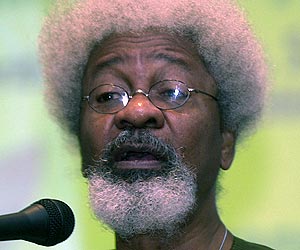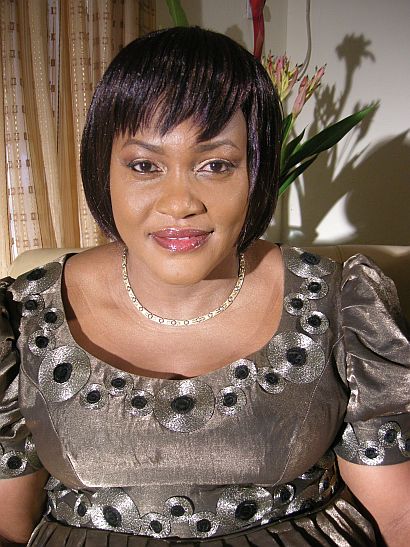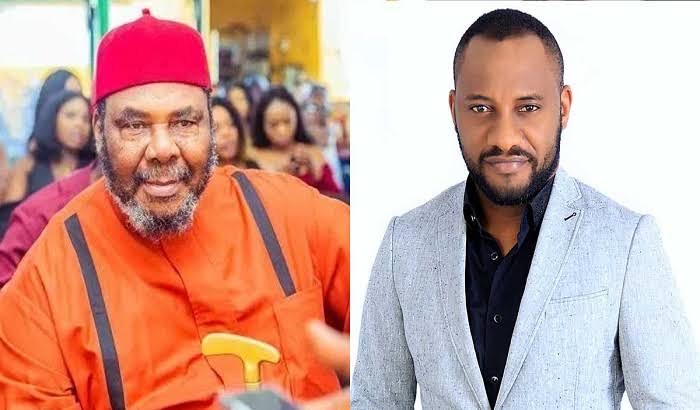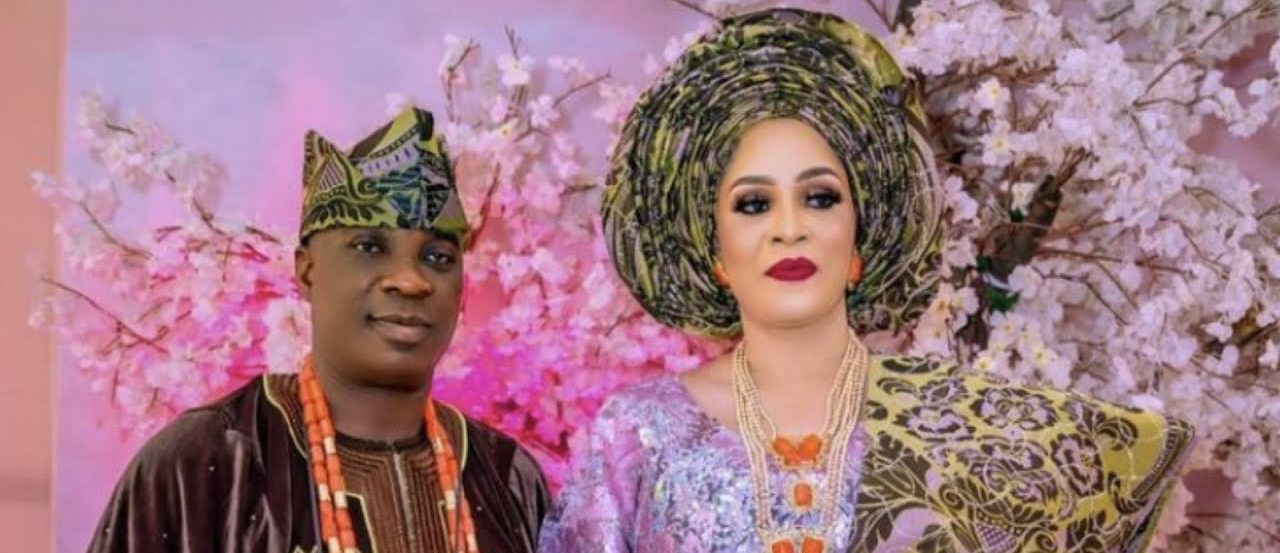
Organized religionists in Nigeria are running into aggressive mentality causing a devastating approach to the unity of Nigeria. This people think that God is their personal acquisition because the constitution of Nigeria stipulated Christianity and Islam as the two official religions in Nigeria oblivious that this is the British imperialists’ hindsight. It’s this marooned way of looking at issues that informed the opinion of one Adamu Adamu who on the 10thof February 2012 wrote an article in Daily Trust, titled, “Soyinka – Still in Bo-Ro-No State.” Adamu started somewhat discourteously by labeling Professor Wole Soyinka, the Nobel Laureate, a total ignorant of the most burning issues in international current affairs. He went further and said that Soyinka betrays an unacceptable level of illiteracy on a related issue at home. Inter alia, Adamu exposed himself to the gallery when he said that Soyinka suffers from tribal hubris and that the later needs to be cured. He called Soyinka a pagan and was envious why the Yoruba hold their culture stubbornly. Adamu said that pagan practice that Soyinka was proud of is in the past and that the faith is no accomplishment because every tribe has had one. Adamu believes that there is no religion like Judaism, Christianity and Islam. He sees anything short of these as heathenism and characterized every other Yoruba beliefs as primitive. He said that the Ifa Orisa divinations are nonsense. He wrote a lot of unprintable things against Soyinka and his Yoruba traditional beliefs just because of the intelligentsia’s subtle method of confronting Boko Haram – a drastic Islamic wing.
One thing pseudo intellectuals and religious dogmatists like Adamu don’t know is that God is not a Jew, Christian or Muslim. Archbishop Desmond Tutu tries to educate schooled (not educated) religionists like Adamu in his book titled, “God Is Not A Christian: And Other Provocations.” Tutu in 1989 addressed leaders of different faiths in a forum during a mission to the city of Birmingham in Britain where he corrected an impression by organized religionists who see God as their birthright. Tutu writes in his book that awe-inspiringly the accidents of birth and geography determine to a very large extent to what faith we belong. He makes his points succinctly that the chances are very great that if you were born in Pakistan you are a Muslim or a Hindu if you happened to be born in India or a Shintoist if it is Japan, and a Christian if you were born in Italy. He regrets that he does not know what significant fact can be drawn from this – perhaps that we should not succumb too easily to the temptation to exclusiveness and dogmatic claims to a monopoly of the truth of our particular faith. You could so easily have been an adherent of the faith that you are now denigrating, but for the fact that you were born here rather than there.
Tutu warns the like of chauvinistic Adamu not to insult the adherents of other faiths by suggesting, as sometimes has happened, that for instance when you are a Christian the adherents of other faiths are really Christians without knowing it. He says that we must acknowledge them for who they are in all their integrity, with their conscientiously held beliefs; we must welcome them and respect them as who they are and walk reverently on what is their holy ground, taking off our shoes, metaphorically and literally. We must hold to our particular and peculiar beliefs tenaciously, not pretending that all religions are the same, for they are patently not the same. We must be ready to learn from one another, not claiming that we alone possess all truth and that somehow we have a corner on God.
Tutu admonishes hypocrites like Adamu that we should in humility and joyfulness acknowledge that the supernatural and divine reality we all worship in some form or other transcends all our particular categories of thought and imagining, and that because the divine – however named, however apprehended or conceived – is infinite and we are forever finite, we shall never comprehend the divine completely. So we should seek to share all insights we can and be ready to learn, for instance, from the techniques of the spiritual life that are available in religions other than our own. He admits that most religions have a transcendent reference point, a mysterium tremendum, that comes to be known by deigning to reveal itself, himself, herself, to humanity; that the transcendent reality is compassionate and concerned; that human beings are creatures of this supreme, supra mundane reality in some way, with a high destiny that hopes for an everlasting life lived in close association with the divine, either as absorbed without distinction between creature and creator, between the divine and human, or in a wonderful intimacy which still retains the distinctions between these two orders of reality.
Tutu advises bigots like Adamu to read beyond their prayer mantra because when we read the classics of the various religions in matters of prayer, meditation, and mysticism, we find substantial convergence, and that is something to rejoice at. We have enough that conspires to separate us; let us celebrate that which unites us, that which we share in common… Surely we can rejoice that the eternal word, the Logos of God, enlightens everyone – not just Christians, but everyone who comes into the world; that what we call the Spirit of God is not a Christian preserve, for the Spirit of God existed long before there were Christians, inspiring and nurturing women and men in the ways of holiness, bringing them to fruition, bringing to fruition what was best in all. We do scant justice and honor to our God if we want, for instance, to deny that Mahatma Gandhi was a truly great soul, a holy man who walked closely with God. Our God would be too small if He was not also the God of Gandhi: if God is one, as we believe, then He is the only God of all his people, whether they acknowledge him as such or not. God does not need us to protect Him. Many of us perhaps need to have our notion of God deepened and expanded. It is often said, half in jest, that God created man in His own image and man has returned the compliment, saddling God with his own narrow prejudices and exclusivity, foibles and temperamental quirks. God remains God, whether God has worshippers or not…
In an Interview by Timothy Dalrymple with R. Kirby Godsey on August 15, 2011, the later, a theologian, philosopher and university president reflects on salvation, grace, and the problem of other religions in his book titled, “Is God a Christian?” Godsey writes that the stakes for mankind have grown too high for any of us to engage our faith as if our understanding of God represents the only way God’s presence may be known in the world.
Just like Tutu, Godsey does not sing a different voice. He says that he is convinced that we cast our vision of God in terms that are too narrow and limited. Those of us who have grown up in the Christian tradition think it’s rather obvious that God belongs to our tradition. We assume God is one of us. But it’s just as apparent to people who grew up in different religious that God’s Word and God’s ways are not the exclusive property of the Christian tradition (or Islamic). There are people of genuine piety and profound religious conviction who have come to that piety through other avenues. At the very least, they deserve our respect and a listening ear.
He talks to racists like Adamu that religious traditions are avenues by which human beings have sensed and expressed their sense of God’s presence. But we should never impose the limitations of our own perspectives, our own limited understanding, upon God. God is not a Christian. God is not a Jew. God is not a Hindu. God is above all our perceptions and all our expressions of God. He says, “This in no way diminishes my own Christian commitment.” He warns that we should never assume that the validity of the Christian tradition is dependent on the invalidity of every other tradition. The light of God’s presence in the world has come to him chiefly through Jesus Christ, but it’s certainly plausible to him that others have experienced God’s presence in the world outside that tradition and that he has no standing to say that God has not spoken in different languages than the Christian language.
Prior to adamant Adamu’s subnormal mentality on Soyinka’s belief and the Yoruba cosmology, Godsey wrote this book preceding to the slaughter in Norway, where Anders Breivik cited the defense of Christendom as a justification for the murder of innocent men, women and children. He is asked if this is just another depressing confirmation of the urgency of creating communities of conversation across religious boundaries. And he says, “It is.” Godsey cries out to the many Adamus of this world that there’s a mountain of bad religion in the world. Every religious tradition, including our own (Christianity), has its dark side; religion goes awry; it’s used for evil purposes. “People kill and maim in the name of God, or Allah, or Yahweh,” Godsey says.
Soyinka might be a stubbornly Yoruba traditional belief. This does not make him an evil person, because he is not of Jewish, Christian, or Islamic traditions in the eyes of the Adamus. Godsey points out that there’s not a dime’s worth of difference between Christian, Jewish, Muslim or Hindu fundamentalists. They’re all cut from the same cloth. Fundamentalist exclusivity, where God is identified with the Christian order, and therefore everything that challenges that social order is a challenge to God and should be a challenge to all Christians and humanity seems to lead to the kind of terrible human tragedy we witnessed in Norway.
In another development, Farouk Martins warns that Africans are wallowing in abject bigotry of foreign spiritual consciousness. This is captured in the article titled, “Africa Ignores Its Religious Actualization For Economic Growth”, published on Sunday, 29 January 2012 in the Nigerian Village Square. Martins tells the conceited religionist Adamu that Africa cannot blame its indigenous religion that has no identifiable or official role in the religious, ethnic and economic problems. The root causes of Africa’s religious, ethnic and economic problems lie in deprecation of its relatively peaceful indigenous religion that has no drive to dominate others and should have been geared to meet modern political and economic challenges. Religion that benefits Africans has been discarded for Muslim and Christian religions that work to the advantages of others at Africa’s expense.
He warns the brainwashed Adamus that there is much more to religion than many people realize. He says that every Continent is proud of its own indigenous religion but Africa. The only officially recognized religion in most African countries is either from Europe, Asia or the Persian Gulf. He cries out that as long as this is the case, there will be unsolvable ethnic and economic problems of the root of which we will never get to, within Africa for lack of self-actualization.
Religious actualization in a country’s economy, Martins says, can be seen in Indonesia or Saudi Arabia; and in India caste system which is a division of labor used to actualize economic growth; so is the Judeo-Christian capitalist system in North America – In God We Trust – but the suppression of Buddhism in China and any religion in Russia were also used to actualize political and economic growth. “Africa lost out on either actualization by suppressing indigenous religion while actualizing those of Muslim and Christian to others advantages,” Martins tells the Adamus of this world.
He goes further to say that Hindu, Sharia and Judeo-Christian economic systems culturally enhance the economic base of their societies while China and Russia saw religion as an impediment to their political economy. He says that what is common in all of them is the furtherance of their economic systems; Africa is similar to the communists in rejecting indigenous religion in its political economy but lost the advantages since Muslim and Judeo-Christian economy were established to further their own commercial culture not in the interest of Africa. “Africans also use indigenous religion in praying for good harvest, rain and guidance in our local commercial transactions,” Martins reminds the blind Adamus.
He cites example of the commercial transactions in the Esusu banking system and cabinet form of government in Oyo Empire which are examples of our neglected political economy. He says that African is deeply involved in religious and ethnic problems partly because there is no national focus or loyalties to individual countries. Only if the Tutsi and the Hutu had national loyalties, if the Hausa, Igbo and Yoruba had national loyalties, indigenous and returned slaves in Liberia had national loyalties to their countries or one religion. True, socialist and communist suppressions might not solve all their problems, it drastically reduced ethnic and religious conflicts while making economic and scientific progress.
Martins tells the partisan Adamus that it must be noted that the Somali have the same language but not necessarily united by the same religions or the same country, because religion contributes significantly to our outlook in life… He warns that domination creates a pyramid where most contributions go to the top usually occupied by the conquerors. He amplifies this rare truth on the organized religions towers that each continent prays to its God for religious mercies and solutions. They pray before assembly, meals and other ceremonies. Whenever there are election, official jamboree, and cultural events they stand up and pray. After any tragic events, most sought console in their religious leaders through atonement, sacrifice and trust in their God. This exact ritual is repeated in Africa today according to the way it is done in other continents but only in the Muslim and Christian ways as the officially recognized religions in Africa!
The Adamus are not even happy that African cultural events are the only way Oya, Sango and other gods across the Continent are recognized. But Martins regrets that the difference is they are only tolerated in the lands of their origin rather than being the official government ceremonies, so what is in the constitutions of other countries in their continent is only tolerated as cultural events in Africa. And it is a shame that the Adamus in Nigeria turned against our own religion.
Martins further opines that many African scholars believe that conversion to foreign religion is the first step into domestication of Africans to soften them receptively to others’ way of life. After the religious emissaries, came traders in gold and slave coasts. There is a universal culture to be polite to strangers but those that were short of goods and resource in their islands and continent knew they had to throw that culture away if they want to conquer others. Therefore, while those at home were still cordial, invaders put up a friendly face with an intention of depriving their host of their resources. The introduction of religion that is kind and considerate was attractive to clean up evil ways and human sacrifice. “Indeed, the evil ways and human sacrifices would only come later in form of exploitation and outright war with far deadlier weapons if resisted,” he cries.
Foreign religion that displaced keepers of our religion, according to him, put their traders at top of pyramid to dictate economic stages and exploitation of resources at the bottom of the pyramids. The bottom-line is that whatever is returned from the top as foreign aides enhances more of what is needed from the bottom… Moreover the Adamus of this world would readily adopt religion outside the Continent so that they can be seen as contemporary member of a universal society.
Just as Adamu sees the Yoruba culture and everything African as primitive and should be only read as history, Martins has a premonition that we should not be surprised to hear Africans using phrases like “civilized world, society or people” more often than others not realizing the implication of such comparisons. It is because of the intimidation by the Adamus that has made the Igwe, Oba, Obi, Emir and others that used to be the religious leaders lost power to govern their people by the introduction of the secular state.
A friend, once a seminarian, who is deep, rooted in the cosmology of the West, but now an Igbo Spiritualist, while narrating the nature of God said that Truth is beyond the objective, because even the objective becomes an in-graspable abstract when pursued extremely. God is not an ENTITY. God simply IS. Proof of this is Mortality. Man and nature ceases to be. But the supply-means of both continues to BE and never ceases. Therefore, where ever both proceed and gather their life-force from has to be far-greater in all-magnitude, logically. Hence this realm of which supplies the “life-force”, although it cannot be seen, is much more ALIVE than that which it gives interrupted-Life. Hence, this realm and the entirety of its force and impact, is attributed to Chukwu (meaning Almighty).
He says that “Yaweh” is simply one among the many attempts of man to identify THE GREATER SOURCE of all that can be seen. Firstly, he does not accept that God has a Gender, because God created gender. He is of the opinion that there is no such thing as a “He” God; the attempt by Judaism to view God through the lens of masculinity already flaws that religion and every things it expounds. This is why he highly appreciates the wisdom of many ancient spiritual systems, such as Igbo Spirituality (Odinala), Yoruba Spirituality etc; they do not tell you that God is a He. They simply tell you that God simply IS. Hence, Odinala says that God is Chi-na-Eke (Igbo): Spirit and Matter, because both aspects are found in proceed and abide within God.
Indeed, he opines that even the Western philosophers whose thoughts Africans considered holistic, say that, “The greatest knowledge that one can attain is to know that they know nothing.” Hence, even those Western thinkers were close to realizing that God does exist. They simply didn’t have the spiritual patience and fervor to pursue further, because if they had done so, they will indeed find God in themselves. “Your cosmology of God is as fair as it gets,” he declares.
There is no need to complicate things, he warns, like the scientists and religious leaders tend to do. Chi-Ukwu (The Great Force) can be likened to things that are seen with the eyes, but Chi-Ukwu (Almighty) is not what is SEEN, but rather it gives force and provides nourishment for that which is seen. Hence, Chi-Ukwu’s persona is revealed in all that is seen. Odinala offers one of the very neatest, clearest and applicable theologies on God: Chi-na-Eke bu Agbara. Agabra is a spiritual edict applied in the explanation of the Perfection that is God, or The Sacredness that is God. Hence, Agbara becomes a Deity or an aspect of God that Man can attain for himself. This aspect is the Holiness of God. “I attended the Bishop Crowther Seminary in Awka. But after that phase of my life, I was blessed to find even greater truths than was offered within the seminary. And that is the knowledge of Self,” he acknowledges. “It is this knowledge that opened my eyes to appreciate the spirituality of Odinala.”
Some Christians are even saying that they wonder why Jesus Christ is the only way to God. A commentator on Tutu’s book excerpt says that “as a Christian I have always felt conflicted about how Jesus could be the only way. Even as a child it didn’t sound quite right or fair but I felt disloyal even thinking that. A few years ago a book titled, Building a Noble World came out and its author finally answered this question for me in a completely logical way…”
This person says that the ultimate statement, “I am the only way” or “I am the only God��� cause confusion to many. This person goes further to say that if Jesus and Mohammed are considered the only God then how can Buddha also be considered the only God? “The answer lies in this analogy: When a river merges into the vast ocean, it loses its identification as a river. Then, the river’s declaration “I am the ocean” becomes true. Similarly, when a prophet merges his sense of individuality with the all-pervasive Consciousness, his declaration “I am the only God” is entirely true. As far as the ultimate realization of every founder of a religion is concerned, it is the attainment of the same Absolute Reality. It is for this reason that the title Christ conveys exactly the same universal consciousness as does the title Buddha,” – author Shiv R. Jhawar
Mankind has been told that it is not about any religion but that any God is as real as our imagination but the Adamus feel that they have the outright right to carry out this operation of their mindset of God hence the Soyinkas should be errored. To customize God they will tell you that JESUS IS GOD and GOD is JESUS or Mohammed is God or God is Mohammed. It is saddening how the Adamus organized religions have always protected God that does not need human beings to protect Him, saddling God with their own narrow-mindedness. The Christian bible says, God created man, but it is very sad that man is creating God in the recent times. The Adamus’ religious intolerance in Nigeria and by extension in the world is a blight on mankind even when they never in point of fact heard God speak to them no matter how old they are; they relied on religious dogma to cause perilous moments to mankind without any furtherance to understand the nature of God that manifests even in ‘non-religionists’ that include agnostics, atheists and naturalists.
An observer says that billions of people are somehow embracing the organized regions for the fear of being ostracized, fear of hell, fear of loneliness, and fear of the devil. This observer goes further to say that all these are very intellectually dishonest. Another observer says that even the Catholics who now call themselves Christians (and can hear some already protesting) were indoctrinated into their faith through fear promoted by pillaging, murder, rape, torture and deprivation sanctioned by the Catholic Church in their bid for world domination and power. (Just the way the Adamus are doing in Nigeria by calling Soyinka names). This observer goes further to buttress the point saying that the authorities of Roman Catholic Church then used the threat of hellfire and brimstone and the so-called devil embodied by the gargoyles still present on churches to this day, to cow the illiterate and gullible masses and Christians now firmly believe the bill of goods they were sold; Muslims also became what they are today by exactly the same means.
“The only difference is that Islamic indoctrination as tiny tots expressly forbids them from changing their religion and the interpretation of the archaic rules they follow is the whip that rules them. Orthodox Jews are just as blinkered except I have not seen historical data of any atrocities they perpetrated to force others to join their religion… I would like to point out that everyone except Muslims is a Christian. I believe the man named Jesus Christ in your bible “christened” us all as such with the exhortation to love your brother,” the observer says.
Sadly, many of these religionists in the world today do not follow God but their so called intermediaries, therefore narrowing the explicit God. “The Bible is political history: inclusion or exclusion of writings and events have been altered many times throughout history by men,” a commentator says. “God is more than we can fathom.”
“God is more than we can fathom” explains the statement, saying that “Yet Jesus Christ prayed to God, (asked if there was any other way), gave up His own will and did the will of the Father. So either Christ prayed to himself and gave up what He wanted for what He wanted or they are two individuals that are one in purpose. Scripture tells us at marriage that a man and woman become one. Not the same person though. Lots of places tell of Christ praying to his Father, doing his Father’s will, returning to his Father, etc. When Christ taught His disciples to pray, He said they should address the Father, in Jesus’ name. He never said “pray to me, in my name,” pinpoints an attendant. “Part of the problem here is the same that many make: conflating the person with the faith. Far too many Arabs, for instance, are “Muslim” without ever making a real decision about that identity. Same goes for many Hindus, Catholics and Evangelicals. Our problem is not that people fight over faith but that they fight over faith without even understanding or choosing faith,” another says.
The Soyinka that Adamu’s poor and embryonic state of mind is trying to debase because of his rational view against bloodbaths by the radical Islamic sect called Boko Haram is honoured without reservation across the world. The Yoruba people even see Soyinka as a noble man. This makes Adamu who swaggers as an educated person refuses to abide by the age-long rule that sees every race, tribe, religion, culture, etc, as not superior to another. Some commentators on Adamu’s article even warn him saying that it is very wrong of him to think that a culture, race, tribe, religion, etc, that does not seek to advance and develop the human society will be logically, morally, intellectually, or spiritually equaled the ones that do.
“What have been the contributions of the Hausa/Fulani culture or religion to the advancement of humanity? And if I may ask, why must you always think that your Hausa tribe and your Islamic religion should be imposed on other tribes and religions? Truly, Boko Haram is a creation of the mindset and backwardness of the North, and should therefore be curtailed by the collective will of Nigerians through the Federal Government by using superior intelligence and technology in bringing this Northern-Creation to its Waterloo,” a commentator enthuses. Another fellow says that Adamu is writing from the point of a brainwashed person who sees salvation only in the religions of his Arab and Caucasian masters, and tells him that for every so called negatives of African Paganism, there are 100 nasty crimes of Islam and Christianity. This person says that the bestiality, racism and hatred of the Jihadists and Christian missionaries cannot be compared to/with the native practices. “Mr. Adamu is a Voice of Intolerance,” says this commentator. “If someone writes a similar nonsense against Adamu’s much adored religion of Islam or Christianity as he has done to Soyink’s belief, you will see them going around beheading people and destroying property. Alas! We, Proud Pagans respect freedom of speech.”
One thing that Adamu was hasty to do was to write before thinking and he is getting his reward. Another commentator tells him of his uncouth and low quality diatribes against Soyinka who is a national Icon and an Avatar which is defined as demi-god. This pays sells Soyinka as one of the living gods of the world. This person says that the indigenous Nigerians would have been better off being animists and heathens than being the organized religionists of this world who sacrifice fellow human beings for religious intolerance; the rich cultures of Latin Americas, especially Brazil, and all the Caribbean countries owe their existence to the Yoruba culture and Soyinka is seen as an Edo, Efik, Ibibio, Igbo, Ijaw, Ilaje, Isoko, Itsekiri, Ogoni, Uhrob, amongst others, and Yoruba in one, because of his humanistic approach to any national issue, and an avatar has no tribe, because he is a god like Gandhi, Buddha and the rest of humane and moralistic others.
There is no better way to describe Adamu other than how a reader describes him: a man from a poor background that lacks exposure and integrity, who is seeking for an unmerited popularity by taking on the altruistic Soyinka. Adamu has behaved like a nursery school boy suffering from multifarious inferiority that does not have value for a people and their culture for calling Yoruba culture primitive. The Adamus who see God from the periscope of the Arabs and Westerners and want to water such down the throats of others, are not any less guilty. Such behavior is a true example of taking the God’s name in vain. They should know that the future belongs to God, not to the organized religions in Nigeria and their religionists.
Odimegwu Onwumere, Poet/Author, Media/Writing Consultant and Motivator, is the Coordinator, Concerned Non-Indigenes In Rivers State (CONIRIV); and Founder, Poet Against Child Abuse (PACA), Rivers State.



















